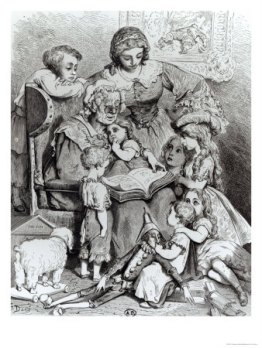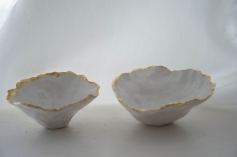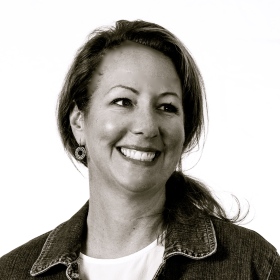Telling Our Stories
Posted on July 23, 2013 Leave a Comment
 “We are primed to use stories. Part of our survival as a species depended upon listening to the stories of our tribal elders as they shared parables and passed down their experience and the wisdom of those who went before. As we get older it is our short-term memory that fades rather than our long-term memory. Perhaps we have evolved like this so that we are able to tell the younger generation about the stories and experiences that have formed us which may be important to subsequent generations if they are to thrive.” Philippa Perry
“We are primed to use stories. Part of our survival as a species depended upon listening to the stories of our tribal elders as they shared parables and passed down their experience and the wisdom of those who went before. As we get older it is our short-term memory that fades rather than our long-term memory. Perhaps we have evolved like this so that we are able to tell the younger generation about the stories and experiences that have formed us which may be important to subsequent generations if they are to thrive.” Philippa Perry
Who can go the hard way with us?
Posted on July 8, 2013 Leave a Comment
 “An honorable human relationship – that is, one in which two people have the right to use the word ‘love’ – is a process, delicate, violent, often terrifying to both persons involved, a process of refining the truths they can tell each other. It is important to do this because it breaks down human self-delusion and isolation. It is important to do this because in doing so we do justice to our own complexity. It is important to do this because we can count on so few people to go that hard way with us.” Adrienne Rich
“An honorable human relationship – that is, one in which two people have the right to use the word ‘love’ – is a process, delicate, violent, often terrifying to both persons involved, a process of refining the truths they can tell each other. It is important to do this because it breaks down human self-delusion and isolation. It is important to do this because in doing so we do justice to our own complexity. It is important to do this because we can count on so few people to go that hard way with us.” Adrienne Rich
Fertile Dormancy
Posted on June 26, 2013 Leave a Comment
 “Sabbath is different kind of fertility; it honours the wisdom of dormancy. If certain plant species do not lie dormant for winter, they will not bear fruit in spring. A period of rest, within which our roots quietly take in nourishment, is the key to health. Like plants, we too must have periods in which we lie fallow and silently nourish our roots.” Wayne Muller
“Sabbath is different kind of fertility; it honours the wisdom of dormancy. If certain plant species do not lie dormant for winter, they will not bear fruit in spring. A period of rest, within which our roots quietly take in nourishment, is the key to health. Like plants, we too must have periods in which we lie fallow and silently nourish our roots.” Wayne Muller
Artists and Stable Harmony
Posted on May 29, 2013 Leave a Comment
 “Another artist, recognizing a higher power above, gladly works as a humble apprentice beneath God’s heaven; then, however, his responsibility for everything that is written or drawn, for the souls which perceive his work, is more exacting than ever. But, in return, it is not he who has created this world, not he who directs it, there is no doubt as to its foundations; the artist has merely to be more keenly aware than others of the harmony of the world, of the beauty and ugliness of the human contribution to it, and to communicate this acutely to his fellow-men. And in misfortune, and even at the depths of existence – in destitution, in prison, in sickness – his sense of stable harmony never deserts him.” Alexandr Solzhenitsyn, 1970 Nobel Lecture
“Another artist, recognizing a higher power above, gladly works as a humble apprentice beneath God’s heaven; then, however, his responsibility for everything that is written or drawn, for the souls which perceive his work, is more exacting than ever. But, in return, it is not he who has created this world, not he who directs it, there is no doubt as to its foundations; the artist has merely to be more keenly aware than others of the harmony of the world, of the beauty and ugliness of the human contribution to it, and to communicate this acutely to his fellow-men. And in misfortune, and even at the depths of existence – in destitution, in prison, in sickness – his sense of stable harmony never deserts him.” Alexandr Solzhenitsyn, 1970 Nobel Lecture
The Narrow Way Forward
Posted on June 21, 2012 Leave a Comment
 ” . . . the Hebrew word for Egypt, Mitzrayim, hints at a similar word in the Hebrew, meitzarim. What is fascinating is that this second word can be translated as ‘a narrow place,’ a space that is ultimately constricting” From Chuck DeGrout, Leaving Egypt
” . . . the Hebrew word for Egypt, Mitzrayim, hints at a similar word in the Hebrew, meitzarim. What is fascinating is that this second word can be translated as ‘a narrow place,’ a space that is ultimately constricting” From Chuck DeGrout, Leaving Egypt
“I’ve been painting pictures of Egypt
Leaving out what it lacked
The future seems so hard
And I want to go back
But the places that used to fit me
Cannot hold the things I’ve learned
And those roads closed off to me
While my back was turned”
Sara Groves, Painting Pictures of Egypt
Gold Stitches
Posted on June 19, 2012 Leave a Comment
 “Love is what carries you, for it is always there, even in the dark, or most in the dark, but shining out at times like gold stitches in a piece of embroidery. ”
“Love is what carries you, for it is always there, even in the dark, or most in the dark, but shining out at times like gold stitches in a piece of embroidery. ”
― Wendell Berry, Hannah Coulter
Empty, Open
Posted on June 18, 2012 Leave a Comment
 “The sea does not reward those who are too anxious, too greedy, or too impatient. To dig for treasures shows not only impatience and greed, but lack of faith. Patience, patience, patience, is what the sea teaches. Patience and faith. One should lie empty, open, choiceless as a beach—waiting for a gift from the sea.”
“The sea does not reward those who are too anxious, too greedy, or too impatient. To dig for treasures shows not only impatience and greed, but lack of faith. Patience, patience, patience, is what the sea teaches. Patience and faith. One should lie empty, open, choiceless as a beach—waiting for a gift from the sea.”
Anne Morrow Lindbergh, Gift from the Sea
Consumed
Posted on March 12, 2012 Leave a Comment
 “The notion of a spirituality of subtraction comes from Meister Eckhart (c.1260-1327), the medieval Dominican mystic. He said the spiritual life has much more to do with subtraction than it does with addition. Yet I think most Christians today are involved in great part in a spirituality ofaddition.
“The notion of a spirituality of subtraction comes from Meister Eckhart (c.1260-1327), the medieval Dominican mystic. He said the spiritual life has much more to do with subtraction than it does with addition. Yet I think most Christians today are involved in great part in a spirituality ofaddition.
The capitalist worldview is the only one most of us have ever known. We see reality, experiences, events, other people, and things—in fact, everything—as objects for our personal consumption. Even religion, Scripture, sacraments, worship services, and meritorious deeds become ways to advance ourselves—not necessarily ways to love God or neighbor.
The nature of the capitalist mind is that things (and often people!) are there for me. Finally, even God becomes an object for my consumption. Religion looks good on my résumé, and anything deemed “spiritual” is a check on my private worthiness list. Some call it spiritual consumerism. It is not the Gospel.”
Soul Growing
Posted on February 13, 2012 Leave a Comment
 When I pray, I feel schizophrenic. The voices in my head are many and competing, each shouting to be noticed: “Don’t forget the dry cleaning.” “What shall I have for dinner?” “Do something with your hair.” Sometimes, I just want to stand, like a teacher, on the desk of my forehead and instruct all the voices to sit down and be quiet. Ssshhhh!
When I pray, I feel schizophrenic. The voices in my head are many and competing, each shouting to be noticed: “Don’t forget the dry cleaning.” “What shall I have for dinner?” “Do something with your hair.” Sometimes, I just want to stand, like a teacher, on the desk of my forehead and instruct all the voices to sit down and be quiet. Ssshhhh!
What’s all the noise about? What would I find in a quieted mind and soul? Author Margaret Guenther suggests that, once silent, we “simultaneously yearn and fear to hear: ‘One thing is needful.’”
In Luke 10, Jesus disciplined Martha for her distraction, while her sister, Mary, did the needful thing; she sat as His feet. I do yearn to push out the cacophonic clutter and make room for Him. When I do try to focus on God, I get distracted with dry cleaning, dinner and my “do.”
In my spasmodic attempts of prayer and stillness, I realize that my soul is small. These little things take on great importance. Pastor John Piper suggests that the soul “expands to encompass the magnitude of its treasure.” I need a treasure worth the whole space of my soul.
Soul stretching, like running, requires effort. When I’m training for a race, I build from a base of miles, and then I push out farther each time. My endurance and capacity expand. So does the territory I can cover comfortably.
Soul stretching is no less. “What the Lord does is enlarge us to possess,” writes Miles Stanford in The Green Letters. “[He] takes us by some way which means our spiritual expansion, and exercise of spirituality so that we occupy the larger place spontaneously.”
But what means expand our souls? When I am romanced by the sight of a golden birch and the vista prompts awe, then my soul expands. Certainly grief and longing grow us. But so do hope, worship and mystery. Conversely, control, miserliness and trivial entertainment can shrivel us.
In prayer, my capacity for Jesus grows. But it happens incrementally. It helps to consider this principle of God’s means of Israel’s territorial expansion: “But I will not drive them out in a single year, because the land would become desolate and the wild animals too numerous for you. Little by little I will drive them out before you, until you have increased enough to take possession of the land” (Exodus 23:29,30).
Little by little, God grows us. And as I create the space and time for Him, He pushes out the trivial and the trite “animals,” like drycleaning and dinner. Most importantly, He makes room enough for my soul’s greatest treasure: Jesus Himself.
Why We Read and Write
Posted on February 13, 2012 Leave a Comment
 “Writing and reading decrease our sense of isolation. They deepen and widen and expand our sense of life: they feed the soul. When writers make us shake our heads with the exactness of their prose and their truths, and even make us laugh about ourselves or life, our buoyancy is restored.
“Writing and reading decrease our sense of isolation. They deepen and widen and expand our sense of life: they feed the soul. When writers make us shake our heads with the exactness of their prose and their truths, and even make us laugh about ourselves or life, our buoyancy is restored.
“We are given a shot at dancing with, or at least clapping along with, the absurdity of life, instead of being squashed by it over and over again. It’s like singing on a boat during a terrible storm at sea. You can’t stop the raging storm, but singing can change the hearts and spirits of the people who are together on that ship.”
Anne Lamott, Bird by Bird
